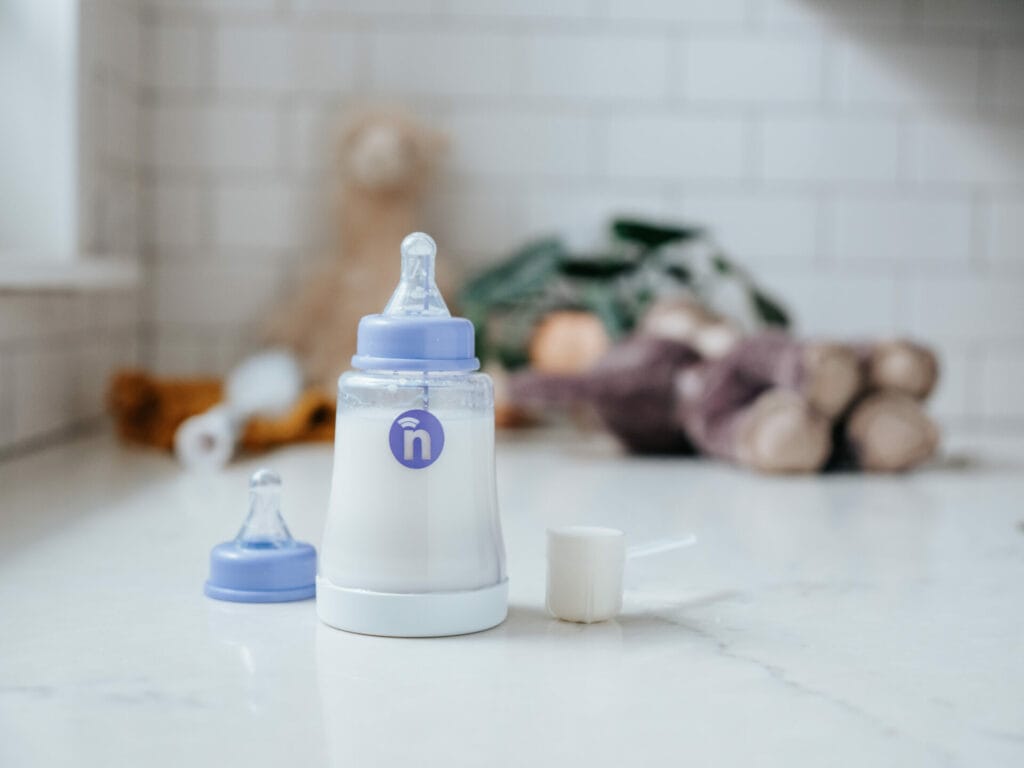What should I ask my pediatrician about feeding my baby?
Last updated on December 20, 2022


If you are a first-time parent, you may be surprised by how challenging feeding can seem. Even if this is not your first child, every baby is different and has different feeding abilities, which may feel confusing—and sometimes scary. If you find yourself wondering if your baby is getting enough food or digesting milk properly, you are not alone. It is completely normal to have such questions, and your pediatrician can be a trusted partner in this journey.
Asking questions can sometimes feel awkward, but remember, there are no silly questions when it comes to your baby’s health. Maybe you aren’t sure when to introduce solid foods, why your baby is refusing certain foods, or how to deal with allergies. These are all valid concerns, and your pediatrician has certainly heard them before. Don’t shy away from getting into the specifics. Each baby is different, and you’re the one who knows your baby best. If your baby seems fussier than usual after feedings, or you’ve noticed any unusual changes, such as changes in his or her bowel movements, mention these details during your appointment.
If you’re breastfeeding and are concerned about your baby getting enough nutrients, your pediatrician can guide you. They can give advice on when to introduce complementary foods or help you if your baby isn’t gaining enough weight.
Formula feeding can have its own challenges, too. You might wonder which formula is best for your little one or how to sterilize bottles properly. Your pediatrician can help guide you through these decisions and even show you safe preparation methods.
Furthermore, if you’re dealing with a picky eater or facing food allergies, your pediatrician will offer strategies and solutions to manage these situations effectively. They will also give you guidance on how to monitor your baby for signs of discomfort, allergic reactions, and more.
Questions for your pediatrician
Here are a few feeding-related questions you may consider asking your pediatrician.
What is the recommended feeding schedule for my baby’s age?
- What is the recommended feeding schedule for my baby’s age? While opinions may differ on feeding schedules, many parents find a basic feeding framework helpful. Each baby’s needs can vary depending on their age, weight, and overall health. A pediatrician can offer guidance about how often your baby should be eating and how much they should consume at each feeding. You can also ask them how to identify hunger cues—reliable signals that your baby wants to feed soon. You can read more about cue-based feeding here.
- How can I ensure my baby is getting enough nutrition? Proper nutrition is the cornerstone of a baby’s growth and development. A pediatrician can explain the signs of proper nutrition and growth, such as consistent weight gain, alertness, and regular bowel movements. They can also advise on nutrients crucial for your baby’s development and ways to ensure your baby receives these through breast milk, formula, or solid foods.
- Are there any specific feeding techniques or positions I should be aware of? There are certain feeding positions and techniques that can make feeding more comfortable for your baby and for you. These positions can also help reduce the risk of issues such as gas or spit-up. Your pediatrician can demonstrate these techniques, guiding you on how to position your baby during feeding times, making this bonding experience more pleasant and efficient.
- How can I address any breastfeeding difficulties or concerns I have? Breastfeeding can be challenging for many new mothers. If you are struggling or have concerns, speak up. By voicing your concerns or difficulties, your pediatrician can provide support and practical solutions, whether it’s improving latching, dealing with sore nipples, or addressing concerns about milk supply. They can also refer you to a lactation consultant for more specialized help if needed[1] .
- When is it appropriate to introduce solid foods? The transition to solid foods is a significant milestone in a baby’s first year. Your pediatrician can recommend the appropriate age for introducing solids, based on your baby’s developmental readiness. They can also suggest which foods to introduce first, how to introduce them, and signs of readiness to watch for in your baby.
- Are there any specific dietary restrictions or allergies I should be aware of? This question helps safeguard your baby’s health. Your pediatrician can guide you on the common allergenic foods and the safest way to introduce them. They can also educate you on the signs of a food allergy or intolerance, ensuring you’re well-equipped to respond if your baby has an adverse reaction. For babies at high risk of allergies, your pediatrician can also create a customized feeding plan.
Don’t worry if feeding your baby feels like a tricky puzzle at times. Your concerns are valid, your questions are important, and your pediatrician is there to support you every step of the way.


Reviewed by Dr. Gilson Capilouto & Dr. Jessie Zak
Next Article

